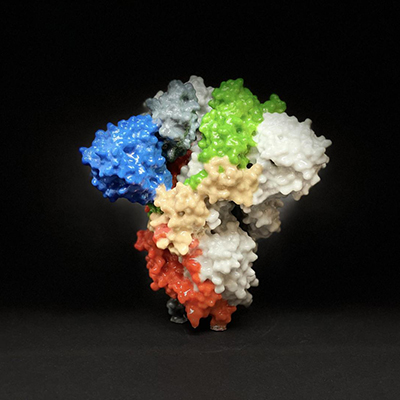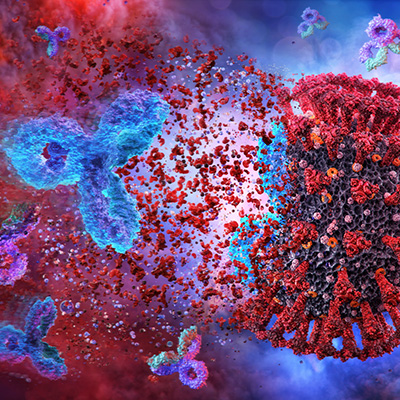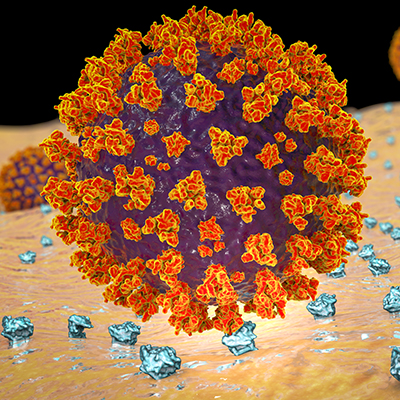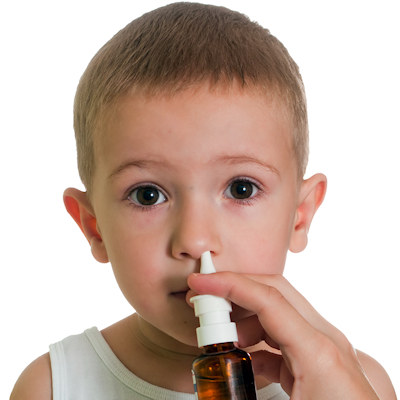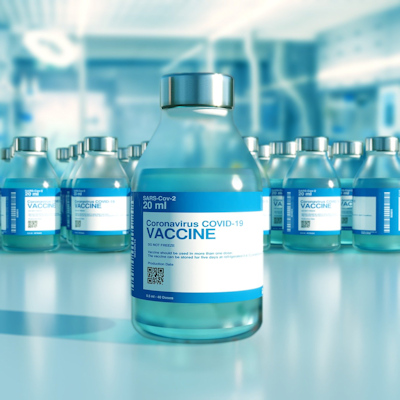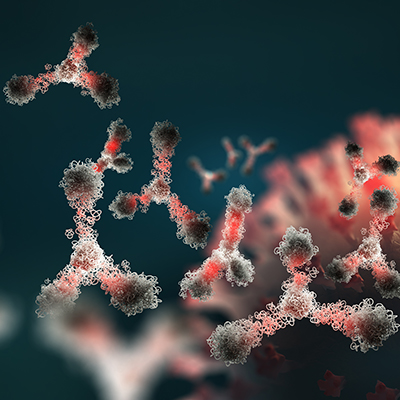December 2, 2022 -- New research from the University of California, Davis, University of North Carolina School of Medicine, and Weill Cornell Medicine indicates that two-dose experimental SARS-CoV-2 vaccines provide protection against COVID-19-related lung disease in year-old rhesus macaques vaccinated as infants.
In 2021, scientists reported that the Moderna mRNA vaccine and a protein-based vaccine candidate containing an adjuvant elicited durable antibody responses to SARS-CoV-2 during infancy in preclinical trials on rhesus macaques. Follow-up research by the same team, published December 1 in the journal Science Translational Medicine, found the two-dose vaccines still provided protection in the same monkeys a year after vaccination as infants.
The researchers immunized two groups of infant rhesus macaques at two months of age and again four weeks later. Each monkey received either a preclinical version of the Moderna mRNA vaccine, or a vaccine combining a protein developed by the National Institute of Allergy and Infectious Diseases with an adjuvant formulation of 3M's molecular adjuvant 3M-052 in a squalene emulsion. The adjuvant stimulates immune responses by engaging receptors on immune cells.
One year later, scientists gave the rhesus macaques a high-dose SARS-CoV-2 variant to assess the immune responses' durability and efficacy. They found that both vaccines protected against COVID-19-related lung disease, despite the SARS-CoV-2 variants having acquired mutations in their spike protein that differed from the vaccine immunogen.
Overall, the adjuvanted protein vaccine candidate maintained higher levels of neutralizing antibodies and provided superior protection than the mRNA vaccine. The results may inform the development of SARS-CoV-2 vaccines that reduce the need for frequent boosters and protect populations without fully developed immune systems, including children under six months old.
"This study emphasizes the need to get human infants immunized against SARS-CoV-2 as much as possible, as the benefits are clear and long-lasting," co-senior author Koen Van Rompay, PhD, leader of the Infectious Disease Unit at the University of California, Davis's California National Primate Research, said in a statement.
Copyright © 2022 scienceboard.net

